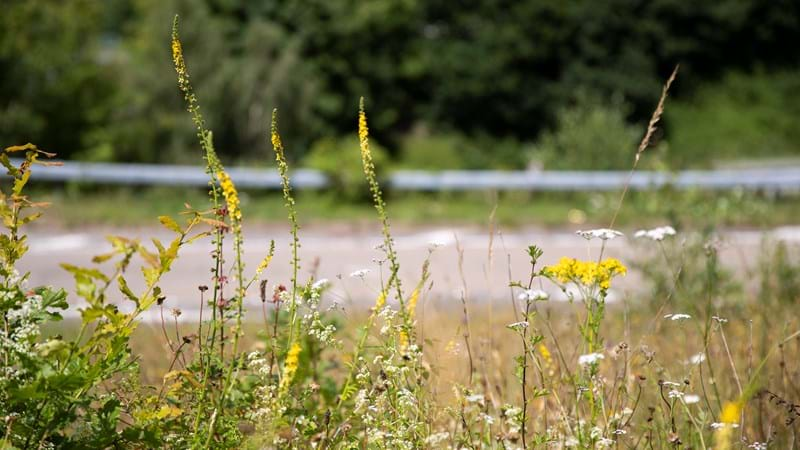National Highways' second-year report on progress towards net zero
Published
19 Sep 2023
Two years on from the launch of our Net Zero Highways plan, our two-year report shows our progress on the journey to net zero highways.

Share this article
Two years on from the launch of our Net Zero Highways plan, our two-year report shows our progress on the journey to net zero highways.
Achievements recorded in the last year include becoming the first roads organisation in the world to receive PAS2080 verification in December 2022, publishing a net zero roadmap for concrete, steel and asphalt, increasing our low emission vehicle fleet to 67%, implementing low energy LED lighting across 28% of our network, and launching the Low Carbon opportunities register.
Additionally, in 2022/2023, we achieved a reduction across all three emission sectors against the revised 2019/20 baseline, with a corporate carbon emissions reduction of 61 per cent, construction & maintenance reduction of 9 per cent and a road user carbon emissions reduction of 6 per cent.
Having already achieved several commitments and as our understanding of data continues to improve, our net zero plan will also continue to evolve as additional information and data becomes available to ensure we remain on track.
This progress report, which represents the second annual update to our strategy – Net zero highways: our 2030 / 2040 / 2050 plan, shows a difference in carbon figures to those reported in our Annual Report and Accounts, due to ongoing data improvement work.
The report includes our annual carbon footprint and new examples of carbon-cutting activities across National Highways and our supply chain.
It also ensures that the actions in our net zero plan contribute to environmental health, resilience for nature, and communities around our motorway and major A-road network.
The strategic road network (SRN) is one of the country’s most critical pieces of infrastructure, directly supporting more than 64,000 jobs and delivering £314 billion to the economy. Operating, maintaining and using the network does come at a cost, with the SRN being a major source of carbon emissions.
However, vehicle emissions are expected to decline rapidly as electric power replaces petrol and diesel propulsion in the coming years and decades. We have a long-term vision to capitalise on the latest technologies and new ways of working to decarbonise the network, while still enabling motorists to get from A to B, as quickly as possible.
Our plan committed to cutting our own corporate emissions to net zero by 2030, followed by maintenance and construction emissions by 2040 and those from road users by 2050.
This publication provides an insight into our achievements in the last year against the plans set out in our Net zero highways plan, including:
- purchased 99.7% of energy from zero carbon sources
- installed energy efficient measures at 32 depots
- switched 28% of the network’s lighting to low energy LEDs
- launched PAS2080 verified Carbon Management System
- published net zero roadmaps for concrete, steel and asphalt
- launched low carbon opportunities register
- invested £42.3m in active travel schemes
- published views on net zero HGV trials
- agreed seven motorway service areas for Energy Storage Systems
- established a carbon hub
- improved carbon data capture methods
Improving how we measure carbon emissions
Steve Elderkin, National Highways Director of Environmental Sustainability, sets out our approach to refining carbon data and our commitment to openness and transparency in reporting.
